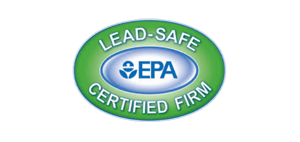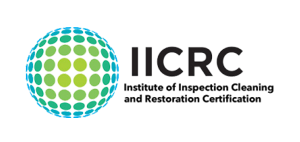Water damage can wreak havoc on your property and lead to expensive repairs. Understanding the common causes of water damage is vital in protecting your home or business. In this section, we will explore the most prevalent causes of water damage and provide valuable tips on how to safeguard your property.
Key Takeaways:
- Plumbing issues, such as burst pipes and leaks, are significant contributors to water damage.
- Extreme weather conditions, such as heavy rainfall and hurricanes, can result in flooding and water intrusion.
- Faulty appliances, such as washing machines and dishwashers, can malfunction and cause water damage.
- Structural issues like roof leaks and foundation cracks can lead to water damage if not addressed promptly.
- Poor drainage around your property can create water pooling and seepage, causing water damage.
By understanding these common causes of water damage and implementing the prevention tips provided throughout this article, you can protect your property and minimize the risk of costly repairs. Stay informed and proactive in safeguarding your home or business against water damage.
Plumbing Issues: A Leading Cause of Water Damage
Plumbing problems are one of the most significant contributors to water damage in homes and businesses. From burst pipes to persistent leaks and faulty plumbing fixtures, these issues can quickly escalate and result in costly damage. Understanding the risks associated with plumbing problems will help you take proactive measures to prevent water damage and protect your property.
One common plumbing problem that can lead to water damage is burst pipes. These can occur due to freezing temperatures or excessive water pressure. When a pipe bursts, it can release a large amount of water into your home or building, causing extensive damage to walls, floors, and belongings.
Leaks are another frequent plumbing issue that can cause water damage over time. Whether it’s a dripping faucet, a hidden pipe leak, or a faulty plumbing connection, even small leaks can result in significant damage if left unaddressed. The constant presence of moisture can lead to mold growth, weakened structural integrity, and costly repairs.
Faulty plumbing fixtures such as toilets, sinks, or showers can also contribute to water damage. Malfunctioning mechanisms, worn-out seals, or loose connections can lead to leaks or seepage, causing damage to surrounding areas and potentially compromising the integrity of your property.
To prevent water damage caused by plumbing issues, it is essential to take proactive steps:
- Regularly inspect your plumbing system for signs of leaks, corrosion, or damage.
- Ensure proper insulation of exposed pipes, especially in colder climates.
- Maintain good water pressure by monitoring and adjusting it as necessary.
- Repair any plumbing leaks or issues promptly.
- Consider installing leak detection devices or water shut-off systems for added protection.
Taking these preventive measures will help mitigate the risk of plumbing-related water damage and safeguard your property. By addressing plumbing issues promptly and implementing proper maintenance practices, you can minimize the chances of experiencing costly water damage in your home or business.
Extreme Weather Conditions and Water Damage
Severe weather events can have devastating effects on your property, leading to water damage and potential flooding. Heavy rainfall, hurricanes, and melting snow are just some examples of extreme weather conditions that can result in water intrusion. Understanding the connection between extreme weather and water damage is crucial in safeguarding your property.
When faced with heavy rainfall, the excessive water can overwhelm drainage systems, causing flooding in low-lying areas. This can lead to water seeping into basements, crawlspaces, and even the main living areas of your home or business. The force of hurricanes can also cause structural damage, compromising the integrity of your property and allowing water to enter.
Flooding and water intrusion not only pose immediate risks, but they can also have long-lasting effects on the structural integrity of your property and contribute to mold growth. That’s why it’s essential to take proactive measures to prevent water damage from extreme weather conditions.
Protecting Your Property from Extreme Weather-Related Water Damage
Here are some key steps you can take to minimize the risk of water damage during extreme weather events:
- Ensure your property has proper drainage systems in place, including downspouts, gutters, and grading that directs water away from your foundation.
- Regularly inspect and maintain your roof, checking for any signs of damage or leaks. Promptly repair any issues to prevent water from entering your property.
- Install durable window and door seals to prevent water intrusion during heavy rainfall or storms.
- Elevate valuable items and electrical equipment off the floor in areas prone to flooding, such as basements.
- Consider installing a sump pump system to remove excess water from your property.
- Stay informed about weather forecasts and take preemptive measures, such as reinforcing doors and windows or temporarily sealing vulnerable areas.
By implementing these flood prevention measures, you can significantly reduce the risk of water damage caused by extreme weather conditions. Remember, being prepared and proactive is key to protecting your property and ensuring peace of mind.
Continue reading to discover another prominent cause of water damage: appliance malfunctions and how to prevent them.
Appliance Malfunctions: Another Culprit of Water Damage
Faulty appliances such as washing machines, dishwashers, and water heaters can spell disaster when they malfunction and cause water damage. Identifying and addressing common appliance malfunctions can help you prevent costly repairs and avoid water damage to your property.
1. Washing Machines
Washing machine leaks are a common cause of water damage in many households. These leaks can occur due to various reasons, such as worn-out hoses, loose connections, or internal component failures. Regularly inspecting your washing machine and taking preventive measures can safeguard your property from potential water damage.
- Tip: Check the hoses connecting your washing machine to the water supply for any cracks or bulges. Replace them immediately if they show signs of wear and tear.
- Tip: Ensure that the washing machine is balanced and level to prevent excessive vibration during the spin cycle, which can cause water leaks.
2. Dishwashers
Dishwasher leaks can go unnoticed for extended periods, resulting in significant water damage to your kitchen and surrounding areas. Understanding the common causes of dishwasher leaks and implementing preventive measures can save you from a potential water damage headache.
- Tip: Inspect the dishwasher’s door gasket regularly for any signs of wear or damage. Replace it if necessary to prevent water from leaking out during a wash cycle.
- Tip: Check the dishwasher’s water inlet valve for any leaks. If you notice any water dripping from the valve, it may be time for a replacement.
- Tip: Avoid overloading the dishwasher with dishes, as excessive weight can strain the appliance and lead to leaks.
3. Water Heaters
A faulty water heater can result in serious water damage if not properly maintained or repaired. Leaks from the water heater tank or fittings can cause significant flooding and property damage. Follow these preventive tips to mitigate the risk of water damage caused by your water heater:
- Tip: Regularly inspect the water heater for any signs of leaks, corrosion, or rust. If detected, contact a professional plumber to address the issue promptly.
- Tip: Consider installing a water leak detection device near the water heater, which can alert you to leaks and help prevent water damage.
- Tip: Flush your water heater annually to remove sediment buildup, which can shorten its lifespan and increase the risk of leaks.
By understanding these common appliance malfunctions and implementing preventive measures, you can protect your property from appliance leaks and the resulting water damage. Regular maintenance and prompt repairs can save you from costly repairs and the headache of dealing with water damage restoration.
Structural Issues: Hidden Causes of Water Damage
When it comes to water damage, it’s not just plumbing issues and extreme weather events that you need to be concerned about. Structural issues within your property can also contribute to water damage, often going unnoticed until significant damage has already occurred. Roof leaks, foundation cracks, and inadequate drainage systems are among the hidden causes of water damage that can compromise the integrity of your property.
Roof Leaks: A damaged or improperly installed roof can allow water to seep into your home or commercial building, leading to moisture buildup, mold growth, and potential structural damage. It’s essential to regularly inspect your roof for any signs of leaks or damage, such as missing shingles, cracked flashing, or water stains on the ceiling.
Foundation Cracks: Cracks in your property’s foundation can provide an entry point for water to infiltrate your building. Over time, these cracks can widen and worsen due to factors like soil settlement, freeze-thaw cycles, or improper drainage. Regularly inspecting your foundation for cracks and addressing them promptly can help prevent water damage and maintain the stability of your property.
Inadequate Drainage Systems: Insufficient or poorly designed drainage systems can result in water pooling around your property’s foundation, causing water to seep into basements or crawlspaces. Proper grading, gutters, downspouts, and drainage channels are essential for directing water away from your property and safeguarding it against water damage.
To protect your property from these hidden causes of water damage, it’s crucial to be proactive and take preventative measures. Regular roof inspections, maintenance, and repairs can help prevent leaks. Addressing foundation cracks promptly can help prevent water infiltration, and investing in proper drainage systems can redirect water away from your property.
In the next section, we will explore the impact of poor drainage on water damage problems and provide strategies for improving your property’s drainage system.
Poor Drainage: A Contributor to Water Damage Problems
Improper drainage around your property can lead to water pooling, seepage, and erosion, ultimately causing water damage. When water is unable to flow away from your property efficiently, it can infiltrate your foundation, basement, or crawl spaces, causing extensive damage to the structural integrity of your building.
In order to prevent water damage resulting from poor drainage, it’s crucial to implement effective strategies to improve your property’s drainage system. Here are some tips to help you prevent water damage caused by improper drainage:
- Installing a French drain: A French drain is a trench filled with gravel and a perforated pipe that helps redirect water away from your property. This drainage system can effectively prevent water accumulation around your foundation.
- Creating a slope: Ensuring that the area surrounding your property slopes away from the building can help divert water and prevent it from pooling near your foundation. This can be achieved by regrading the soil and adjusting the landscape.
- Cleaning gutters and downspouts: Regularly cleaning and maintaining your gutters and downspouts is essential in preventing clogs and blockages that can lead to improper drainage. Make sure they are free from debris and effectively directing water away from the foundation.
- Installing a sump pump: A sump pump is a device that helps remove excess water from areas prone to flooding, such as basements. Installing a sump pump can provide an added layer of protection against water damage caused by poor drainage.
By implementing these water damage prevention strategies, you can effectively address improper drainage issues and minimize the risk of water damage to your property. Taking proactive measures to ensure proper drainage not only protects your investment but also provides peace of mind during heavy rainfall or other water-related events.
Human Error: Carelessness That Causes Water Damage
While natural disasters and plumbing issues are often blamed for water damage, it’s important not to overlook the role of human error. Careless mistakes made by homeowners can lead to costly damage and unnecessary headaches. By being aware of common human errors and taking preventive measures, you can avoid potential water damage incidents.
Common Mistakes That Cause Water Damage
Here are some common human mistakes that can result in water damage:
- Leaving faucets running: Forgetting to turn off faucets can lead to overflowing sinks and water damage in your home.
- Neglecting maintenance: Failing to maintain your plumbing system, appliances, and fixtures can cause leaks and other water-related issues.
- Mishandling plumbing fixtures: Improperly installing, repairing, or using plumbing fixtures can cause leaks and contribute to water damage over time.
It’s important to be mindful of these potential pitfalls and take proactive steps to prevent water damage in your home.
| Preventive Measures | Explanation |
|---|---|
| Regularly inspect and maintain plumbing system | An annual inspection of your plumbing system can help detect and address any potential issues before they worsen. |
| Install shut-off valves | Having shut-off valves installed can allow you to quickly stop the flow of water in case of emergencies. |
| Properly handle plumbing fixtures | Follow manufacturer’s instructions for installation, repair, and usage of plumbing fixtures to prevent leaks and damage. |
| Regularly check and clean gutters | Clogged gutters can cause water to overflow and seep into your home. Regular maintenance can prevent this. |
By being cautious and implementing these preventive measures, you can significantly reduce the risk of water damage caused by human error. Don’t let carelessness become a costly mistake. Take proactive steps to protect your home and keep it safe from water damage.
Conclusion
Understanding the most common causes of water damage is essential for protecting your property from potential harm. By implementing the prevention tips provided throughout this article, you can minimize the risk of water damage and maintain the integrity of your home or business.
Plumbing issues, extreme weather conditions, appliance malfunctions, structural problems, poor drainage, and human error all contribute to water damage. Being aware of these factors allows you to take proactive measures to prevent water damage and safeguard your property.
Regular maintenance, routine inspections, and prompt repairs can help identify and address potential issues before they escalate into major water damage incidents. Additionally, investing in proper drainage systems and being mindful of human mistakes can significantly reduce the likelihood of water damage.
Remember, prevention is key. By staying vigilant, implementing preventative strategies, and taking immediate action when necessary, you can protect your property and avoid the costly and disruptive consequences of water damage.
FAQ
What are the most common causes of water damage?
The most common causes of water damage include plumbing issues, extreme weather conditions, appliance malfunctions, structural issues, poor drainage, and human error.
How can I protect my property from water damage?
You can protect your property from water damage by regularly inspecting and maintaining your plumbing system, installing proper drainage systems, addressing structural issues promptly, and practicing good habits such as turning off faucets and properly maintaining appliances.
What are the plumbing issues that can lead to water damage?
Plumbing issues such as burst pipes, leaks, and faulty plumbing fixtures can lead to water damage. It is important to address these issues promptly to prevent further damage.
What role do extreme weather conditions play in water damage?
Severe weather events such as heavy rainfall, hurricanes, and melting snow can result in flooding and water intrusion. It is important to take preventive measures and ensure proper flood protection to safeguard your property.
How do appliance malfunctions contribute to water damage?
Faulty appliances such as washing machines, dishwashers, and water heaters can malfunction and cause water damage. Regular maintenance, timely repairs, and replacing old appliances can help prevent such incidents.
What are the hidden causes of water damage related to structural issues?
Structural issues like roof leaks, foundation cracks, and inadequate drainage systems are hidden causes of water damage. Identifying and addressing these issues can help prevent water intrusion and damage.
How does poor drainage contribute to water damage problems?
Improper drainage around your property can lead to water pooling, seepage, and erosion, ultimately causing water damage. Improving your property’s drainage system can help prevent these problems.
What are common mistakes that contribute to water damage?
Common mistakes that contribute to water damage include leaving faucets running, neglecting maintenance, mishandling plumbing fixtures, and not taking proper precautionary measures. Being mindful of these mistakes can help prevent water damage.



